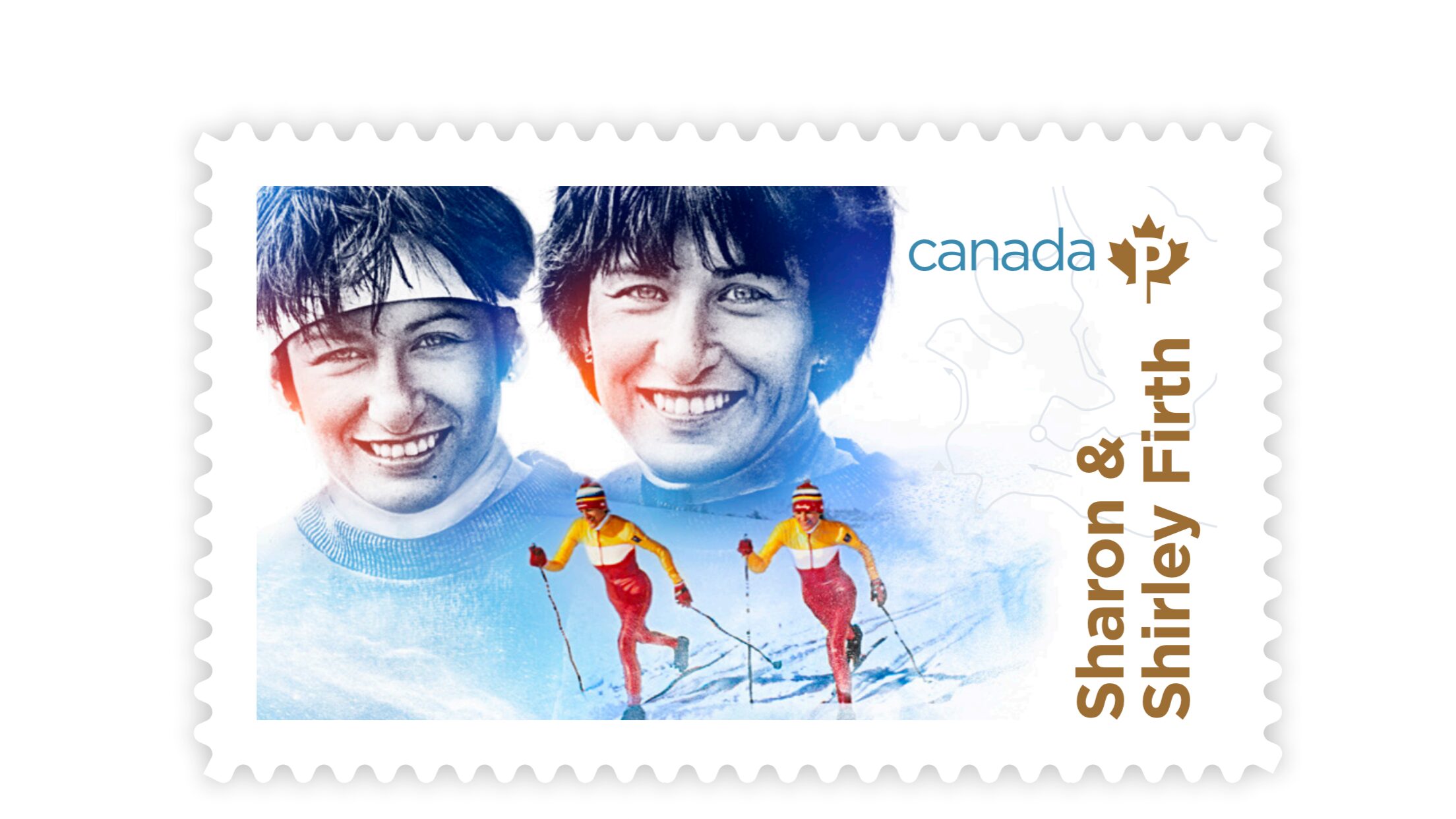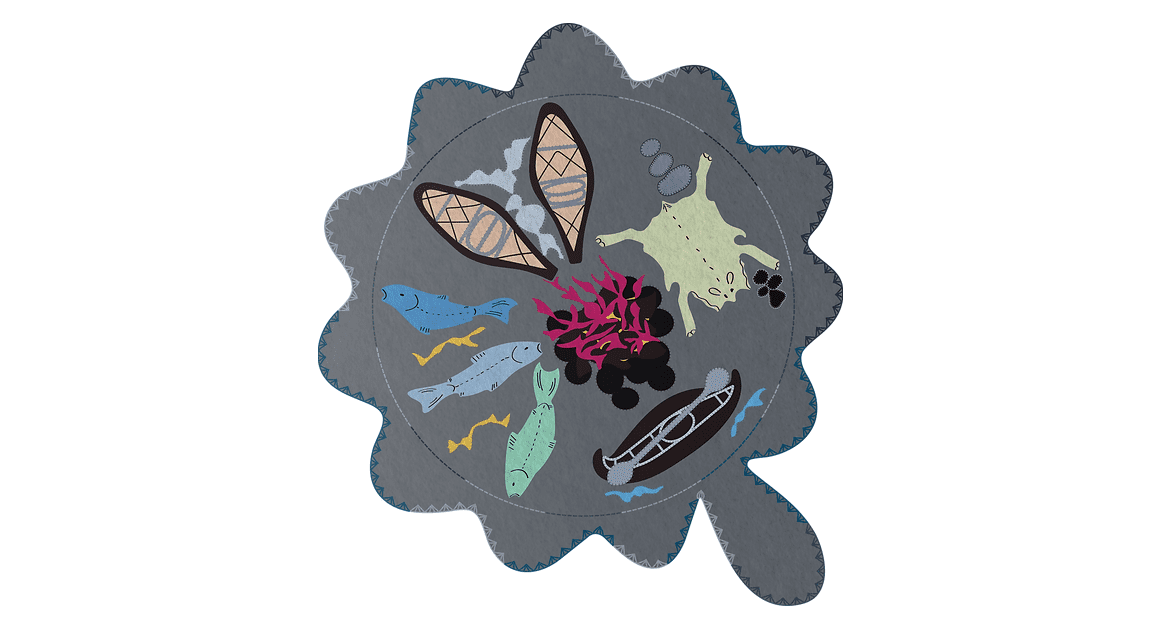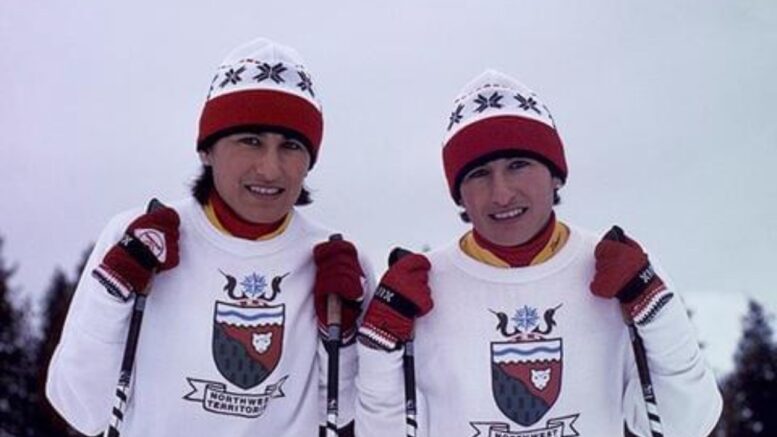A new podcast delves into the influence of recreational activities at northern residential and day schools and how it reflects the strength, resilience, and creativity of former students and survivors.
It’s called How I Survived, and is co-hosted by former chief of Tulı́t’a and journalist Paul Andrew. He is accompanied by Crystal Gail Fraser, a Gwichyà Gwich’in from Inuvik and an assistant professor in history and native studies at the University of Alberta.
Canadian sports star Sharon Anne Firth is featured in one of the episodes, where she talks about being introduced to skiing through the Territorial Experimental Ski Training (TEST) program.
“They were experimenting on Indigenous kids to see if we could excel in international sport,” says Sharon. “We proved to them, we are natural athletes.”
The TEST program was launched in the Northwest Territories in 1967. It stemmed from two workshops held in Inuvik by Jean Marie Mouchet, a Roman Catholic priest from France who saw a local interest and aptitude in skiing.
The program included Sharon and her twin sister Shirley Firth, along with many other students from the Stringer Hall and Grollier Hall residential schools.
The Firth sisters grew up on the trapline with their parents on the Mackenzie River, Inuvik. Although they had never heard of skiing prior to the program, they picked it up naturally and grew into international athletes.

Sharon Firth is a 39 times Canadian national ski champion and Shirley has won 42 times. To this day, these numbers remain unneatened. (Photo courtesy of Sharon Firth)
“I think we were talented, I mean, we trained like you wouldn’t believe,” says Sharon. “We were committed to the program, to racing, and to promoting the Northwest Territories.”
The twins went on to compete in four Winter Olympic Games, three World Championships, and many other competitions. They have brought home 79 medals over the span of their careers.
“Skiing took us around the world many times, and we got to share our culture and lifestyle to people across Canada, the United States and Europe,” says Sharon.
“The most wonderful and powerful thing was sports, and I think that’s what saved a lot of us kids.”
While sports left a positive impact on the Firth sisters, not every residential school survivor shares that experience.
“For others, it was something imposed and forced onto children,” says the assistant professor Crystal Gail Fraser, “there were some aspects of sports and recreation that presented values and teaching that were in direct contradiction to how they were raised as Indigenous children.”
“Sports and recreation were used as a tool of assimilation to remove Indigenous culture, to teach discipline, and to make Indigenous children better resemble white Canadians,” Fraser says.
During the podcast’s launch event, retried teacher Beatrice Bernhardt recalled her experience.
“You didn’t feel that you were as good as so and so in skiing, basketball or volleyball, and if you always got hit, you’re out,” says Bernhardt. “Suddenly, you didn’t feel good about yourself anymore.”
In this podcast, listeners will hear more about Firth’s and Bernhardt’s stories, as well as what sports and recreation meant for four other former students and survivors, both positivity and negatively.
The cast features former journalist Rassi Nashalik, former chief of the Salt River First Nation David Poitras, retired teacher Beatrice Bernhardt, social worker Ernie Bernhardt, and textile artist Agnes Kuptana, who designed the cover art of the podcast.

The cover art is in the shape of an Inuvialuk drum. It features a campfire in the centre, surrounded by four seasonal activities, including spring hide tanning, summer kayaking, fall fishing and winter snowshoeing. (Designed by Agnes Kuptana)
The podcast is the fruit of a research project initiated by Fraser and the NWT Recreations and Parks Association in 2018.
The first two episodes of the seven-part series are live on Apple Podcast and Spotify. For a proposed season two, the project is looking for more survivors to share their stories around recreation.
If you are a survivor or intergenerational survivor of residential or day school and need help, there’s a free 24-hour support line at 1-800-695-4419. You can also find information about other supports here.





